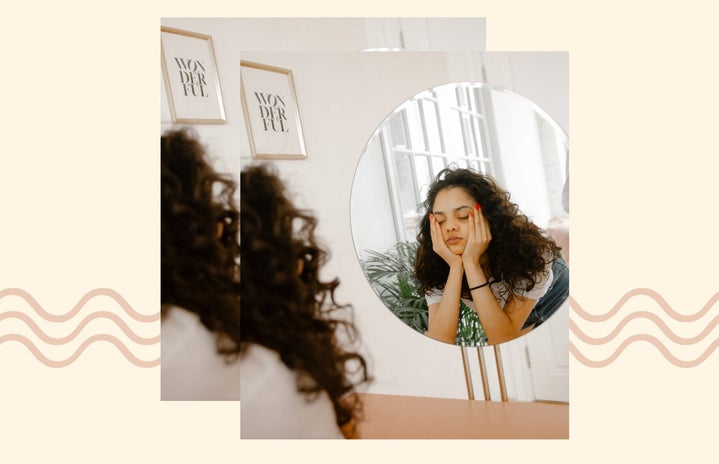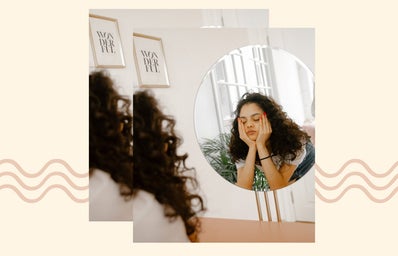When you’re deep in the job search mindset and sending application after application, you get your hopes up. However, when an inevitable rejection (or two, or three…you know how it goes) hits, it feels like such a blow to your self-esteem. Personally, I’m always looking for career opportunities and putting myself out there, but with that territory comes tough rejections that leave a serious sting.
After a rejection, it’s easy to get swept up into a wave of self-pity, self-doubt, and sadness, so it’s beyond important to prioritize your wellbeing and put yourself first. Taking care of your mental health after a rejection not only will help you rebuild your confidence when applying and interviewing, but will keep you on the right track to feeling content with your path.
Processing emotions after a rejection
Some applications are inherently more exciting than others—you feel like you’re a perfect match, your interview was flawless, and you had a great connection with the interviewer. Those moments tend to have the greatest impact on you if a rejection occurs.
Was it personal? If this opportunity that seemed like such a good fit didn’t select you, who will? These are fair questions—but try to focus your energy on believing that the right opportunity will happen at the right time. As hard as that might sound, it’s true. If you’re rejected, it’s because it’s just not the best thing for you or the company at the time, and that doesn’t mean that you’ll never get hired (or even that you’ll never work at that specific company).
These post-rejection emotions are big, and pushing them aside won’t work at all. Instead, let yourself experience them, but set a time limit and make sure to channel those emotions in a healthy way. If you’re super devastated about a rejection, it’s okay to cry or process in the way that works for you. Once you feel like you’ve gotten it out, do the things you love and take some time to focus on other activities, whether that’s starting a new series on Netflix (can I recommend Cheer? So good) or cooking a comforting meal.
Now is a good time to practice journaling, too. Expressive writing has been shown to be therapeutic no matter your age or areas of interest.
Coping with feelings of self-doubt
Aside from being sad about a rejection, the sense of self-doubt it can create is the most detrimental to your ability to move forward. Feeling self-doubt can be almost paralyzing, especially if you need to keep moving forward with other applications and interviews.
To cope with self-doubt, it’s beneficial to actively focus on your strengths, skills, and positive qualities, especially those beyond the job-search realm. On the one hand, you should remember all of the qualifications you have that are going to be an amazing fit for another employer down the line. On the other, though, you should reflect on the parts of who you are that the employer that rejected you didn’t get to know—your kindness, empathy, cleverness, loyalty, and what you do beyond work, whether that’s volunteering in the community every week or running your own business on the side. No matter your industry, you as a person have so many amazing qualities that make you who you are, beyond just skills and requirements listed on a job application.
It’s much easier to feel confident and believe in yourself when you look at the whole picture, rather than just what you didn’t necessarily meet for a specific role at a company who has a vision of certain checkboxes on paper.
What to do after a rejection
Let me tell you, I’ve gotten some hurtful rejections over the last year. Since I’m always applying for remote jobs in the writing and editing industry, I put out a lot of applications. However, on the ones where I made it to the next step, whether that be an edit test or a video interview, a rejection hurt more than I imagined. I found myself stuck in a cycle of being sad and feeling defeated.
Through these, though, I’ve strengthened my post-rejection mental health care strategy to be clean and beneficial. I barely have to think about it—once I’ve let myself be sad for a little while, I move on to these self-care steps, prioritizing my comfort and taking some time to enjoy and reflect.
Here are some quick self-care ideas following an application rejection.
- Cook or bake something new (or an old favorite recipe).
- Take some time alone to do the things you love.
- Distract with TV or a good movie.
- Read a book you’ve been meaning to get around to.
- Take a bubble bath and spend time taking care of your body.
- Eat foods that make you feel good.
- Spend some time off your computer.
By prioritizing your mental health, using the strategies above, and practicing small acts of self-care to rejuvenate and recharge, you’ll be able to overcome the impacts of a rejection and feel happier as you move forward. Accept that things will work out, and that you’ll land exactly the role you’re supposed to have eventually. Sometimes, patience is the hardest part, and when you have bills to pay, every rejection stings. But focus on the positives about yourself and build up your confidence—get ready to move forward and slay the application process.



